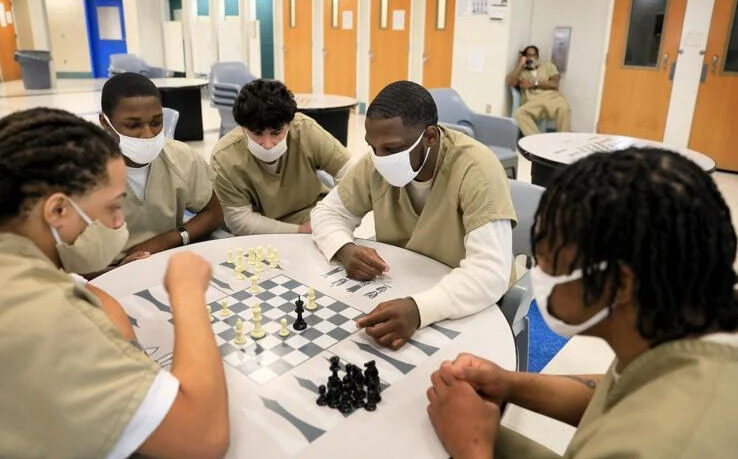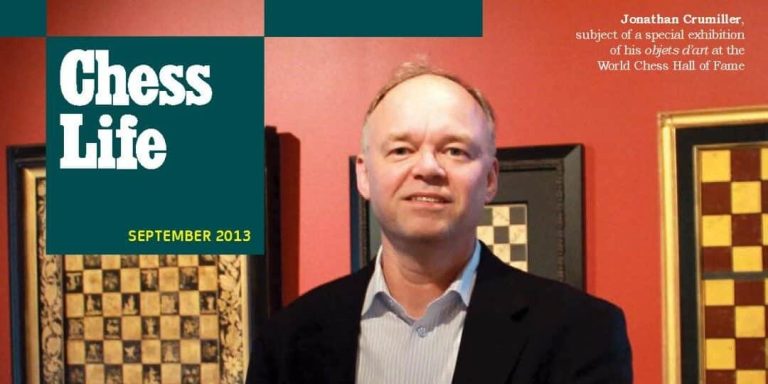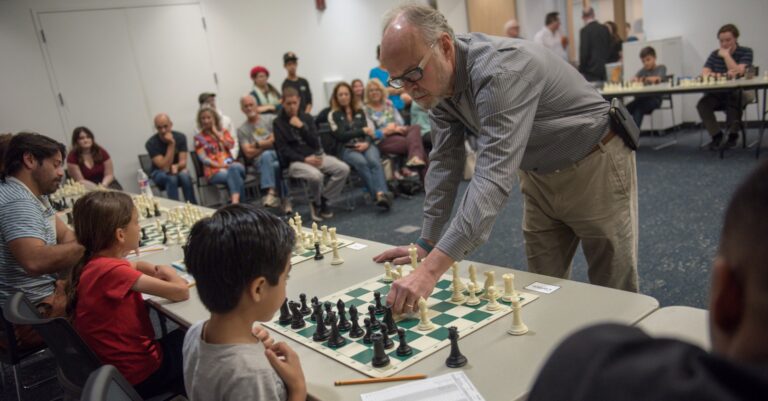Table of Contents
ToggleUPDATE AS OF FEBRUARY 12, 2023
In the past month we’ve had a lot of meetings and made a lot of contacts which we believe will be instrumental in getting a “Chess in Jails” program going in Hays County.
- We met with the Hays County Judge’s office, and they were optimistic in getting a chess program going in the Hays County Jail. Their office is also assisting in arranging a meeting between the SMTX Chess Club and the Hays County Sheriff’s office. Ultimately, the decision would fall to the Hays County Sheriff, but we believe we have a compelling argument to do a one year trial chess program in the Hays County Jails.
- We had several phone calls with Tony Ballard, the Director of the Prison Outreach division of “The Gift of Chess” nonprofit. Tony was serving a 25-year sentence in prison when chess changed his life. You can listen to him tell his story on the Perpetual Chess Podcast. Him and “The Gift of Chess” have fully committed to providing all chess boards, pieces, and clocks needed to start a chess program.
- We also had a conversation with the Cook County Sheriff’s office, who has the longest running “Chess in the Jails” program in the country. The Cook County Sheriff, Thomas Dart and the primary chess instructor at the facility, GM Mikhail Korenman, both offered their support and said they would be happy to write a letter or email to our county vouching for the efficacy of chess in jails programs.
Chess in Jails:
 The SMTX Chess Club is already a place for everyone in the community to come together, socialize, and play chess both casually and competitively. That alone is amazing and has filled an undeniable need in Hays County…but we also want more. We believe chess can be a major catalyst for change in our community and jails seem like a perfectly place to really put that theory to the test. If even a single inmate each year actually changes as a result of a chess program and leads a different life, it’s worth it and society benefits. It is also not just that one inmate life that is bettered; everyone they would have affected negatively had they not changed also has their lives change for the better, even if only a little. There’s a reverberating effect. We believe chess can be so much more than just another distraction from incarceration and can actually transform lives.
The SMTX Chess Club is already a place for everyone in the community to come together, socialize, and play chess both casually and competitively. That alone is amazing and has filled an undeniable need in Hays County…but we also want more. We believe chess can be a major catalyst for change in our community and jails seem like a perfectly place to really put that theory to the test. If even a single inmate each year actually changes as a result of a chess program and leads a different life, it’s worth it and society benefits. It is also not just that one inmate life that is bettered; everyone they would have affected negatively had they not changed also has their lives change for the better, even if only a little. There’s a reverberating effect. We believe chess can be so much more than just another distraction from incarceration and can actually transform lives.
A Tool for Rehabilitation and Skill Building
Jails and prisons have long been seen as places for punishment, with little emphasis on rehabilitation and skill building. However, in recent years, a growing recognition of addressing the root causes of criminal behavior and providing prisoners with the tools they need to succeed upon their release, has been examined by criminal justice professionals. One program that has gained popularity is the introduction of chess in jails.
The Benefits of Chess in Jails
Chess is a game that requires strategic thinking, problem-solving, and critical analysis. By learning chess, prisoners develop these skills and apply them to their everyday lives. Additionally, chess also improves memory, concentration, and creativity. It also provides a welcome distraction from the monotony of prison life and can help relieve stress and anxiety.
Furthermore, chess is a great way to foster sportsmanship, emotional regulation, and a growth mindset. Chess helps build a sense of community and teaches prisoners the importance of fair play and respect for others.
How Chess is Being Implemented in Jails
There are several ways in which chess is being implemented in jails. Some facilities have dedicated chess rooms where prisoners can play and learn the game. In other cases, chess is being taught as part of a rehabilitation program, where prisoners can learn valuable life skills, such as communication, cooperation, and decision-making.
There are also many organizations dedicated to promoting chess in jails. For example, The Gift of Chess has a division dedicated to providing equipment and resources for chess in jails and prisons, including providing training and resources to help prisoners learn and play the game. Additionally, there are also initiatives like the FIDE Chess for Freedom Initiative, which provides research and tools to support chess in jails program and even started an annual online worldwide tournament composed of teams of inmates from chess in jails programs from around the world.
The Impact of Chess in Jails

The introduction of chess in jails has had a positive impact on prisoners in numerous ways. Prisoners who play chess have been found to have improved critical thinking and problem-solving skills, and they have also been shown to have reduced instances of behavioral problems. Additionally, chess has also been found to help prisoners build positive relationships with each other and with staff. Several studies on chess in jails programs have also shown that chess can have a dramatic reduction in recidivism rates among participants. One study on a Brazil chess program showed that in less than one year in the program, recidivism for inmate participants went from 72% to 47%, after 1-2 years it dropped to 22%, and 17% after more than 2 years.
Chess teaches skills that many inmates may lack, such as understanding and thinking about the consequences of actions, emotional control, retrospection, good decision making, patience, and responsibility. Through chess, inmates begin to learn and internalize important life skills. The Cook County Jail chess program has been a model for chess in jails programs and has been running for over 10 years now.
Chess is a valuable tool for rehabilitation and skill building in jails. By incorporating chess into jail programs, prisoners can develop essential skills that will serve them upon their release. By providing prisoners with the tools they need to succeed, we can help reduce recidivism and create safer, stronger communities. I encourage everyone to listen to Tony Ballard’s interview on the Perpetual Chess Podcast to fully understand the impact chess can make. We fully believe what Cook County Sheriff Thomas Dart said can also be true for Hays County: “This is not just another activity in our jail…[chess] is transformative.” Chess.com made a short documentary video on the Cook County Jail chess program that can be viewed here:




